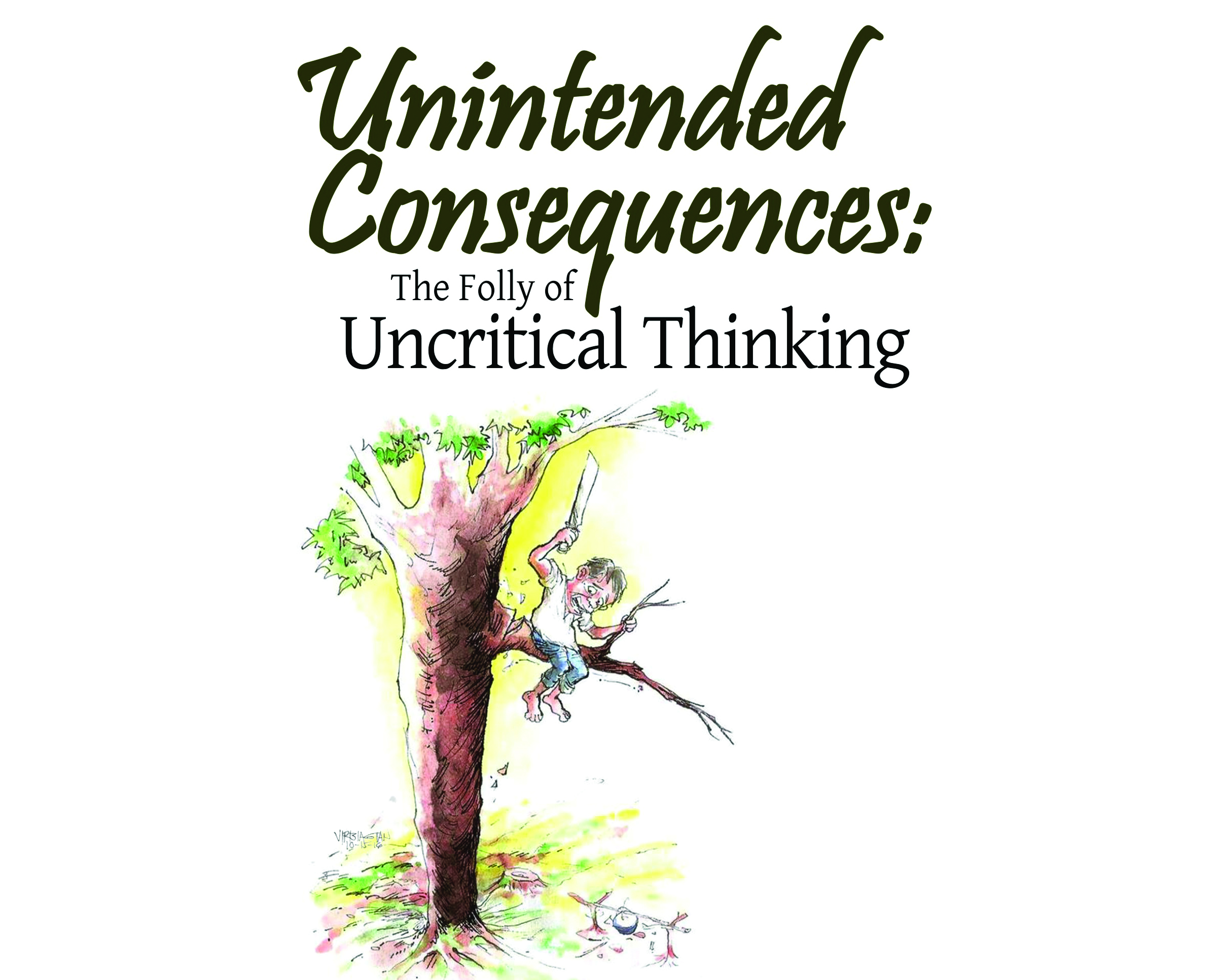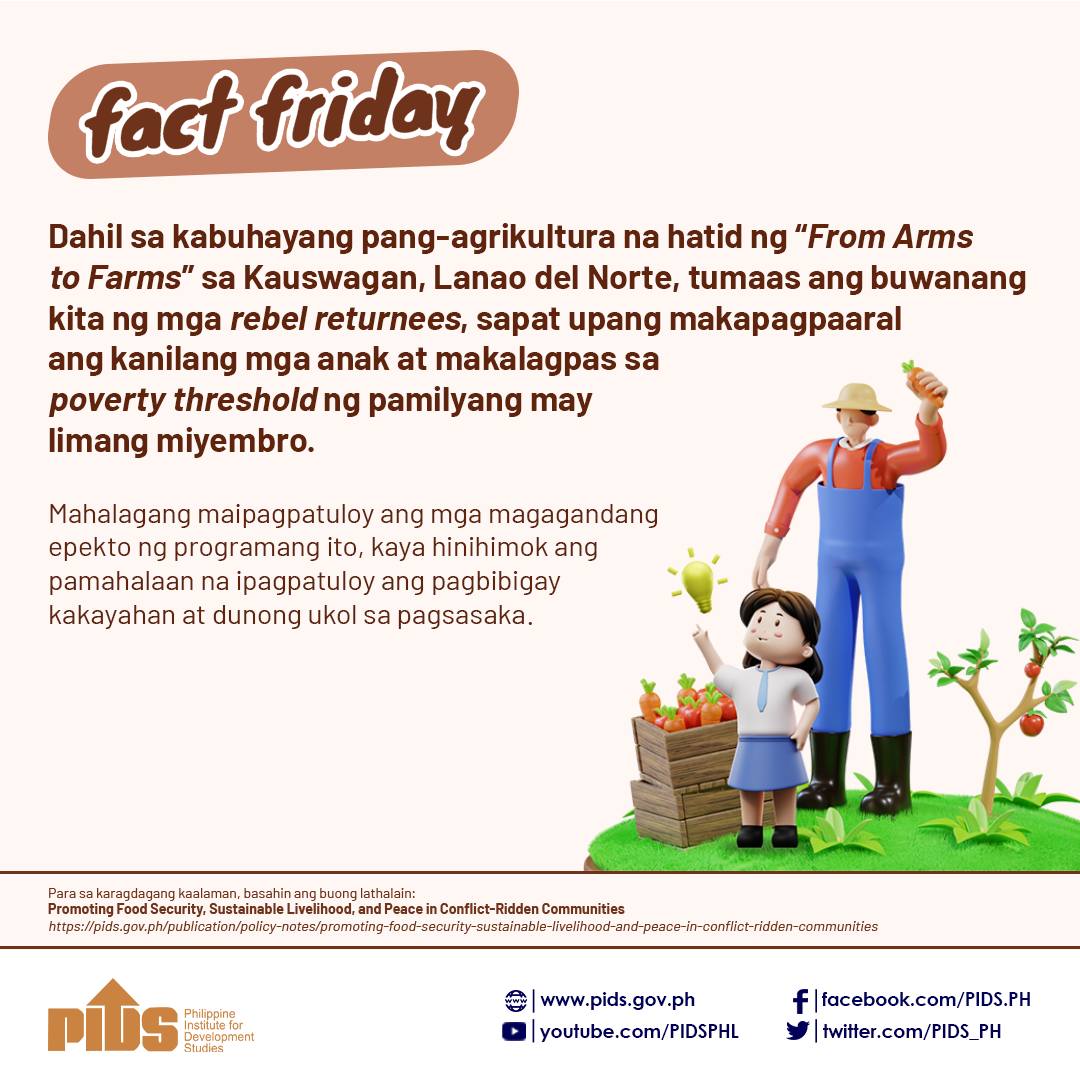
The Philippine policy system is marred by legislations and policies that are well-meaning but fail to serve their purpose. More often than not, they lead to inadvertent outcomes that adversely affect the poor and the marginalized, hamper productivity and innovation, engender corruption, and cause wastage of government resources. There are also regulations and statutes that proved to be successful and effective but are “heavily criticized”.
This is the central theme of the book “Unintended Consequences: The Folly of Uncritical Thinking” jointly edited by Vicente Paqueo, Aniceto Orbeta Jr., and Gilberto Llanto of the Philippine Institute for Development Studies (PIDS).
Composed of 10 chapters, the book tackles the most prevalent, relevant, and urgent socioeconomic issues that confront the Philippine society today. The topics range from food, housing rent, small-scale enterprises, and environmental concerns like overfishing and logging, to contentious subject matters such as sex education, minimum wage, cash transfer, and temporary employment.
In one chapter of the book, for example, Aniceto Orbeta and Vicente Paqueo posit that the call for the abolition of the government’s Pantawid Pamilyang Pilipino Program (4Ps) would negatively affect its recipients. Based on impact evaluation studies conducted on the 4Ps, the program has significantly improved children’s school enrollment, health services utilization, and the poor households’ spending on education and health. Also, the findings debunk the opinions of critics that the program spawns laziness, mendicancy, dependency, gambling, and other vices.
On the proposal to curtail or prohibit temporary employment contracts (TECs), research reveals that it could “lead to slower growth of employment and gross domestic product”. The authors assert that “TECs are needed to deal efficiently with seasonal, fixed-term, project-based demands as well as unexpected business fluctuations and economic shocks.” Prohibiting TECs, they say, would mean less flexibility in the deployment of labor when and where they are needed and are most valued.
Meanwhile, Danilo Israel and Vicente Paqueo deduce that the implementation of Executive Order (EO) 23 or the imposition of total log ban brought more harm than good. Investigations done in the Caraga wood industry have proven that illegal logging increased after the EO with the prevalence of rent-seeking and corruption.
These are just some of the instances cited showing how noble objectives can oftentimes lead to unfavorable outcomes.
The reasons for these “unintended consequences”, according to Paqueo and his co-editors, are ignorance, error or lapse in judgement, belief systems, political exigencies, problem complexity, failure to think critically, and the lack of empirical evidence to support the formulation of policies and programs.
They also opined that government interventions are also “largely driven by populist pressures, half-baked ideas, and narrow private-vested interests” that usually reap unfavorable results.
To avoid the recurrence of the same slip-ups, they recommend that government should invest more on data collection and analysis, and strengthen the capacity of research institutions to undertake credible impact evaluation of policies and programs. This would enable political leaders, voters, and experts to make well-grounded and more transparent economic and social decisions.
Likewise, they encourage key players to veer away from damaging policy decisions or policy oppositions “based on uninformed opinions and blind submission to popular and traditional systems of ideas and ideals”.
All stakeholders are also urged to demand policymaking bodies and government decisionmakers to formulate legislative actions and issuances based on “clear and sound theory of change and credible empirical evidence”.
You may access the e-copy of the book, the discussion papers below where the chapters are based, and other related studies from the PIDS website and the SocioEconomic Research Portal for the Philippines. Simply type the relevant keywords in the Search box.
Cargo Truck Ban: Bad Timing, Faulty Analysis, Policy Failure
The Impact of Legal Minimum Wages on Employment, Income, and Poverty Incidence in the Philippines
Beware of the "End Contractualization!" Battle Cry
Food (In)security and the Price of Rice Self-Sufficiency
Rent Control in the Philippines: An Update
Planting Seeds of Self-Defeat: Effects of Unrealistic Regulations on the Caraga Wood Industry and Forest Conservation
Reducing the Unintended Consequence of Overfishing Due to Open Access: Learning from the Zamboanga Experience
Pantawid Pamilya Pilipino Program: Boon or Bane?
The Irony of RH Law Critics' Opposition to Comprehensive Sex Education












